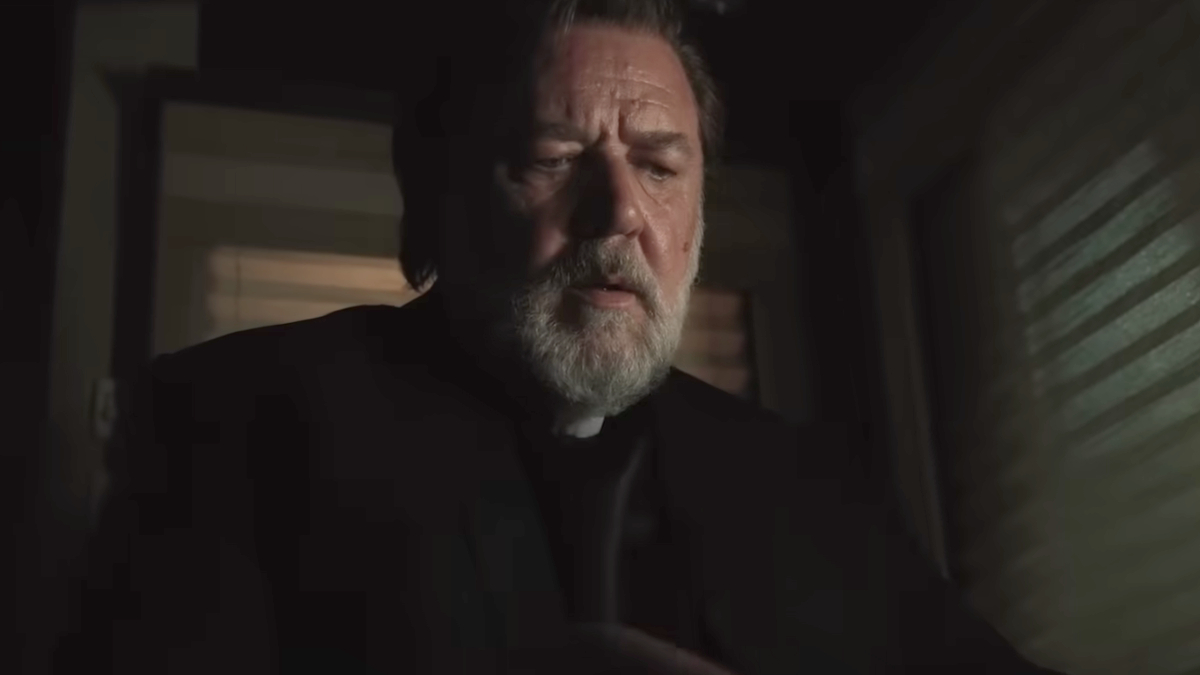
As society continues to further the threshold of technological advancement, horror cinema must adapt accordingly. More than any other genre, horror films mirror social phenomenons to exploit generational norms. Wireless carriers rarely drop service, smartphones can be tracked via GPS locators, handheld devices can research data on-the-spot – it’s getting harder and harder for on-screen killers to dupe victims these days. That’s why movies like Unfriended, The Den and Cam2Cam have ushered in a new cyber-terror scourge, something that Simon Verhoeven’s Friend Request looks to upgrade.
Alycia Debnam-Carey stars as Laura, a popular college co-ed with a healthy social following on Facebook (it’s never spoken, but it’s Facebook). Out of the blue one night, she receives a friend request from one of her loner classmates (Marina Mills, played by Liesl Ahlers). Laura initially sees no harm in befriending the quiet new student, and spends the next two weeks playing into Marina’s digital obsession.
On her birthday, Laura lies to Marina about party plans only to have incriminating pictures surface online. This leads to Marina’s suicide, but the weirdness doesn’t stop there. Marina’s Facebook profile remains active, and starts interacting with Laura – sending messages, posting, and then controlling her own page. Laura tries to delete Marina’s obscene content – and then her own profile – but cannot due to errors. As cyber-friends begin removing Laura from their circles, the cursed girl tries to stop Marina’s phantom profile from destroying her life any further – and that’s when people start dying.
Upon first glance, Verhoeven’s interweb possession thriller does remind of Unfriended all too closely – until story elements marry black magic with modern devices. Marina is able to sacrifice herself by harnessing Black Mirror practices that witches of yesteryear worshipped, to become this coded poltergeist living through information transference (Shocker 2.0). Translation? Verhoeven (along with co-writers Philip Koch and Matthew Ballen) finds a way to unite classic horror myths with millennial madness, providing a killer example of genre adaptation.
Unfortunately, execution isn’t something for horror fans to get overly excited about here. Verhoeven adapts a second persona as “Director Jumpy McJumpscare,” a visionary who relies solely on close-up jolts that weaken an otherwise viral horror disease. Symbolism flies black wasps everywhere while nightmarish figures from Marina’s past walk freely to establish chilling atmospheres, but scares are always of the same cheap, easy breed. Quick and intense, but rarely earned – another glowing example of horror that relies on nothing but misguided genre perceptions. Jump scares are to be used sparingly, and only as supplemental contrasts to full-framed horrors that bubble like a simmering cauldron. You’ve seen these tactics too many times to be impressed – even if you shriek.
Of course, these proclamations are coming from someone who has seen over 100 horror movies this year alone (and we’ve still got a month left). Less seasoned watchers won’t be as critical, and can share in techy digital demons far worse than a broken iPhone. Young viewers will be sucked in by wavy strings of HTML jargon that can only be updated through an electronic exorcism, even if Verhoeven gets away with never saying the word “Facebook” (copyright negotiations, I’m sure).
This is a nightmare for insta-tweeting zombie children, as marathon texters will find a villain who can penetrate every facet of today’s hi-def world. We’re always connected, meaning Marina can strike at any moment – or kids will just cower in fear when thinking about the reality of deleting their Facebook page. Either way, you could really mess up a Gen-X devotee with horror like this.
There’s nothing wrong Verhoeven’s cast thanks to a very Blumhouse-reminiscent package, which is no guarantee when it comes to horror indies. Debnam-Carey leads a diverse (lol) class of college friends who range from “chubby” funny men (Sean Marquette) to the hottie best friend (Brit Morgan), but at least they’re all fairly grounded (when not imagining faceless ghouls).
Even Ahlers – as over-the-top stalker Marina – manages to avoid becoming too grossly obsessive (aside from customized artwork), despite a lunchtime conflict with Laura after being lied to. Connor Paolo’s baggy-eyed, twitchy hacker provides plenty of shady friendship, while Brooke Markham and William Moseley play straight-laced student types on the opposite character spectrum. These are young adults audiences can relate to (especially of the same age), except for the whole being hunted by their dead schoolmate bummer.
Actually, you know what? I’m going to bat for Friend Request. My initial reaction was a 2.5/5 with specific recommendation rules, but the more I think back on the abundance of jump scares, at least they’re efficient. Obvious and sometimes aggravating no doubt, but still effective in raising blood pressure given a backstory so instilled with old-school cultism.
Marina represents the crux of internet addiction in a demonic manifestation, warning of the dangerous emphasis today’s youths put on glowing screens and internet popularity. That, in itself, is worth more than similar indie titles without relevance, as Simon Verhoeven finds meaning in hard drives, radio waves and a life glued to hypnotizing devices. Not the smartest take on technological torment, but it’s certainly sinister enough. Get a good cyber scream in, why don’t you?






